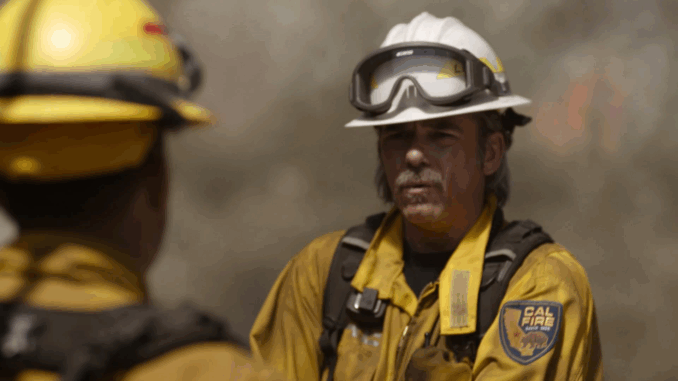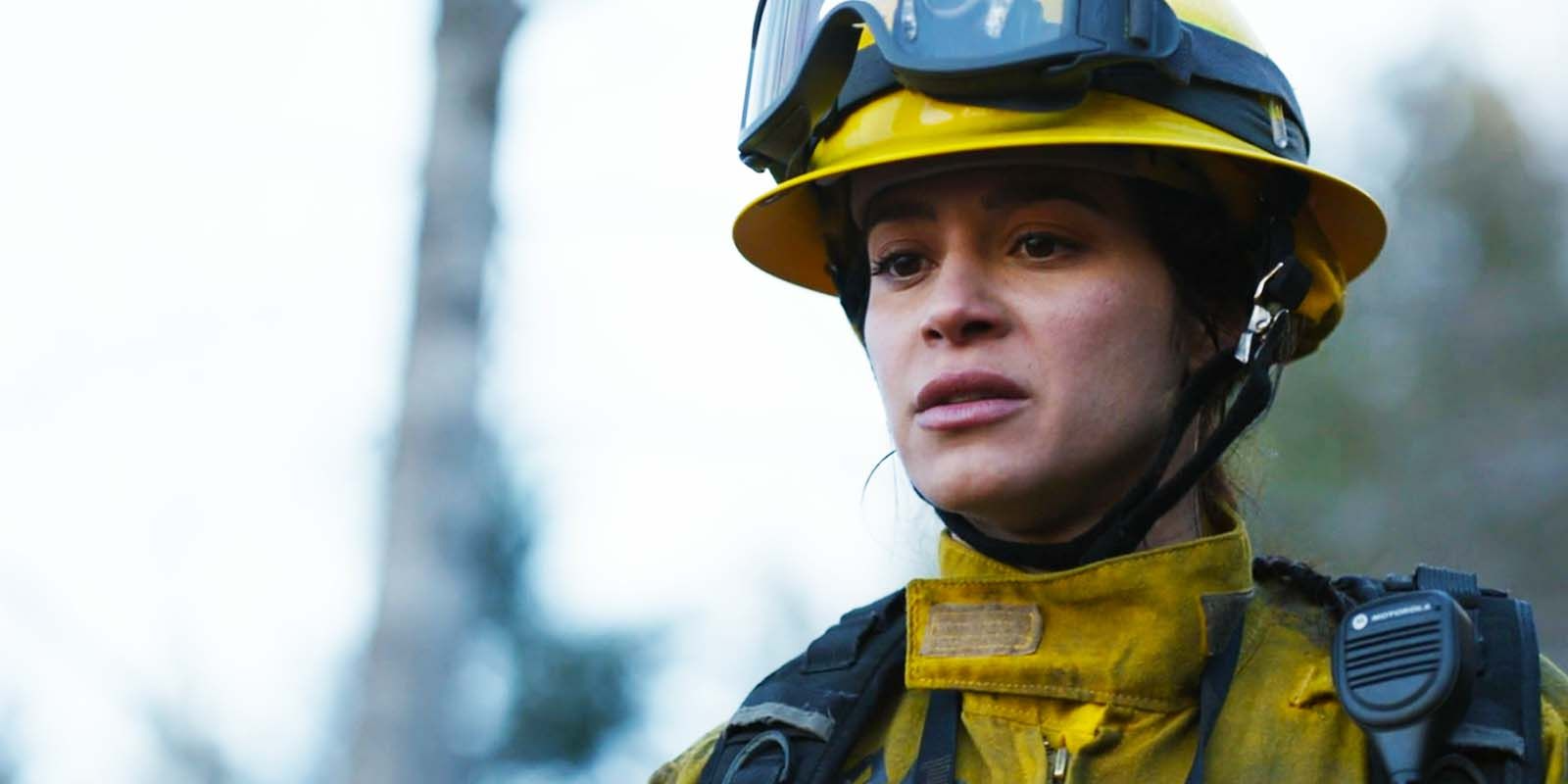
Introduction: More Than a Firehouse Drama
At first glance, Fire Country seems like another adrenaline-fueled action series centered around heroic firefighters battling raging blazes. But dig deeper, and you’ll find that the true heat of the show burns within its deep, tangled web of family relationships. From generational trauma to emotional reconciliation, the show’s family dynamics form the heart of its most compelling storylines.
The relationships between parents and children, siblings, and found families in Fire Country don’t just provide background—they are integral to the show’s identity. The drama, after all, isn’t just about putting out fires in the forest. It’s about confronting the emotional infernos we carry from childhood, the unhealed wounds of betrayal, and the hope that reconciliation is still possible.
The Leone Legacy: Firefighting as Family Business
At the emotional core of Fire Country lies the Leone family. Vince and Sharon Leone are seasoned Cal Fire veterans—respected, capable, and deeply tied to their roles as firehouse leaders. But behind the uniform, they are also parents to Bode Donovan, a son whose troubled past weighs heavily on them.
What makes this family dynamic so resonant is the interplay of personal and professional roles. Vince isn’t just a fire chief—he’s a father trying to process disappointment. Sharon isn’t just a commanding officer—she’s a mother holding onto hope. Their roles constantly collide, especially when Bode returns to Edgewater as part of the inmate firefighting crew.
This blurring of boundaries creates some of the most powerful moments in the series. Vince’s inability to fully forgive Bode reflects his struggle to separate professional discipline from paternal love. Sharon’s softer approach, meanwhile, reflects the burden of maternal guilt—did they do enough to prevent Bode’s spiral? Were they too hard on him? Too lenient?
These questions are never fully answered. And that’s what makes the show honest.
Bode and His Parents: Healing in the Heat

Bode’s relationship with his parents is the emotional epicenter of the show. At its heart is the tension between who he was, who he is, and who he’s trying to become. Vince and Sharon represent two poles in his journey: skepticism and faith. Vince’s hard exterior contrasts with Sharon’s unwavering belief that Bode can change.
Their interactions are not neat or sentimental—they are messy, raw, and filled with pain. Vince often speaks through clenched jaws. Sharon cries quietly when no one’s watching. Bode stumbles between defensiveness and vulnerability.
But as Bode proves himself in the field, moments of healing begin to emerge. When Vince grudgingly acknowledges Bode’s bravery, it lands like a thunderclap. When Sharon puts herself on the line to protect her son’s place in the program, it reaffirms the unconditional nature of her love.
The Leone family isn’t a happy, picture-perfect unit—but it’s real. It’s a portrait of a family burned by the past but still fighting for a future.
Found Family in the Fireline
One of Fire Country’s strongest themes is the idea that family isn’t just blood—it’s the people who show up for you when it counts. The fire crew becomes a surrogate family for Bode and others who feel alienated or broken.
This “found family” dynamic plays out in powerful ways:
-
Jake Crawford, despite his rocky relationship with Bode, slowly becomes a reluctant brother figure—someone who challenges Bode but also backs him up when needed.
-
Gabriela Perez, once Bode’s romantic interest, evolves into someone who pushes him to grow—not out of romantic obligation, but out of respect and lingering affection.
-
Eve Edwards, tough yet compassionate, becomes a voice of reason and emotional support within the team.
Each of these characters brings their own emotional baggage to the fireline, but together, they form a unit built not just on training, but on trust and shared pain.
This collective bond is especially poignant given how many of them are estranged from their own families. The fireline becomes a place of emotional adoption, where loyalty is earned through courage, not biology.
The Father-Son Rift: Vince and Bode’s Unspoken War
Among the many familial tensions in Fire Country, none is more electric than the cold war between Vince and Bode. Their scenes crackle with intensity, often silent but charged with disappointment, anger, and the aching need for validation.
Vince, a man of few words, struggles to articulate the grief he carries. He grieves not just for what Bode did, but for what Bode might have been. Bode, on the other hand, aches for approval but refuses to grovel. This pride on both sides fuels a rift that sometimes feels impossible to cross.
But their bond is never beyond saving. When they share a quiet moment after a harrowing fire, or when Vince steps in to defend Bode during disciplinary decisions, we see glimmers of a father rediscovering his son—not as a failure, but as a fighter.
It’s not dramatic reunions that define their journey. It’s the small, hard-won steps toward mutual understanding, where forgiveness comes not in words, but in actions.
Sharon Leone: The Matriarch Under Pressure
Sharon deserves a spotlight of her own. As a woman balancing the demands of a leadership role with the emotional weight of being a mother, she is the emotional backbone of the show. Her strength doesn’t come from physicality—it comes from her ability to believe in redemption even when evidence is thin.
Sharon is often caught in the middle—between Vince’s rigid rules and Bode’s fiery recklessness. She mediates, she protects, she advocates. But she also breaks. Her health struggles add urgency to her mission: to see her family whole before it’s too late.
Her story is a reminder that matriarchs don’t always get the luxury of falling apart. But when she does, the show doesn’t shame her. It honors her vulnerability. Sharon Leone isn’t just a supporting character—she’s the soul of the Leone family.
The Cost of Legacy
Firefighting is more than a job in Fire Country—it’s a legacy. For the Leones, it’s generational. For Bode, it’s aspirational. But legacy can be a burden. Bode’s attempts to live up to his parents’ reputations often feel crushing. Vince and Sharon, in turn, must grapple with the painful truth that their legacy might have come at the cost of emotional connection with their son.
The show doesn’t offer easy resolutions. It asks hard questions: Can you be a great public servant and still be present for your family? Can children escape the shadow of their parents’ expectations? Is legacy a gift, or a weight?
These questions elevate Fire Country from procedural drama to generational commentary.
Conclusion: Healing the Burn, One Bond at a Time
In Fire Country, the flames may be the immediate threat, but it’s the emotional burns—left by betrayal, regret, and estrangement—that leave the deepest scars. Yet, just like in real firefighting, recovery is possible. With every fire fought, every argument softened, and every silent act of forgiveness, the families in Fire Country inch closer to healing.
Whether bound by blood or battle-tested on the fireline, family in Fire Country is never simple. But it is always worth fighting for.
